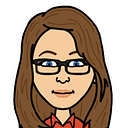Feeling Like a Boss: My Journey as a Designer Founder
That moment you discover you actually know what you’re doing. Because it’s easy to forget about progress made.
September 2009: The Beginning
IDEO has long been considered a pinnacle of good design. As a student at Parsons in New York City I often heard about their products and projects in the studio. Many of my classmates dreamed of joining the ranks of their strategists and creators, including myself, and we all looked up to them as examples of the endless possibilities and tremendous power of great design.
They were real designers. They were experts.
January 2013: The Tension
Fast-forward to under a year after graduation. I’ve been working a well-paying job at a branding & innovation agency in Manhattan for almost a year now. I’m an Experience Strategist — a role I have created myself that gives me the ability to use both my creative and strategic business skills, yet I’m plagued daily by the feeling that I’m wasting time and letting a huge opportunity pass me by. I’ve spent the past six months complaining to my patient boyfriend about this, and he clairvoyantly bets me that I won’t stay another month before quitting.
February: The Leap
He was right. I have just quit. I decide to dive head first into the startup world as the founder of workZeit. All of my free time over the past year has been spent speaking with hundreds of HR practitioners, founders, recruiters, consultants and managers to better understand the problems facing the people in charge of people.
I discovered the biggest problem plaguing HR across industries and companies of all sizes was finding and leveraging cultural fit of candidates and employees (though some didn’t call it that). Along the way I learned how people had attempted to solve this issue, what research had been done on the topic in the past, and what methods had worked, or fallen flat. (Ladies and gentlemen, please don’t waste your time with Myers-Briggs/MBTI).
I had begun the process of productizing a solution that had previously been left to the ranks of consultants, recruiters, and, well, people. The startup path is hard, especially when you choose to innovate in an industry like HR, but I’m determined to succeed and have always been relentlessly persistent.
March: The Teacher
Serendipitously, before the talk at an Inside Startups event, I introduce myself to the speaker of the night: David Bloom, CEO of Ordr.in. He will become a great teacher and personal mentor, always reminding me to keep going. Never stop.
April: The Alpha
We begin testing our alpha product with six different companies based in NY. The feedback is invaluable, and teaches us what needs to change in order for us to be able to sell our product. We also learn more about our target customer, what they’re looking for, and what they’re willing to pay. We know we still have a very long way to go.
May: The Advisor
We gain our first advisor: Joaquin Roca. He will become a tremendous help and provide us with amazing guidance in the coming months.
June: The First Sign
I’m asked to speak on a panel and teach a workshop on building a social culture in the enterprise at the HR Tech Summit in Chicago. We expose our improved product for the first time to the heads of recruiting & talent management of corporate giants, and their response is overwhelmingly positive. Thus begins the painfully slow enterprise sales process.
July: The Design-Geek Freakout
We’re getting somewhere. In a meeting with Khoi Vinh, after showing him our latest product, he says:
“The design is really impressive. I think it’s great!”
August: The Inspiration
I meet Gregg Carey, Co-Founder & COO of Voxy. He will become a great personal mentor and an on-going source of inspiration for me as I go through the ups-and-downs of starting a company. He will always remind me what’s important.
September: The Thought Leaders
More random people we meet tell us they’ve heard of our company. This is a good sign. I’m invited to speak on a panel about building and managing company culture at the Work Revolution Summit. After the talk, I’m surrounded by HR practitioners and thought-leaders that are interested in hearing my opinions on issues they’ve been facing.
I’m finally the one giving advice.
October: The Money
We bring our first paying customer on board: Felix, a high-growth startup will be using workZeit to manage their culture as they double in size over the coming months. This is the perfect test case for us.
November: The Accelerator
We move to San Francisco for a six month accelerator program that focuses on enterprise startups. We join a network of awesome founders, gain two new amazing mentors (Matt Robinson & DD Ganguly), and throw ourselves into the tech community in the Bay area.
December: The Request
A team of researchers at IDEO reach out to ask if they can interview me regarding a project they’re working on for a large corporate client.
They say they’re looking to speak with experts on the topic of building and managing company culture, and believe I will be able to give them great insight. I can, and I do.
